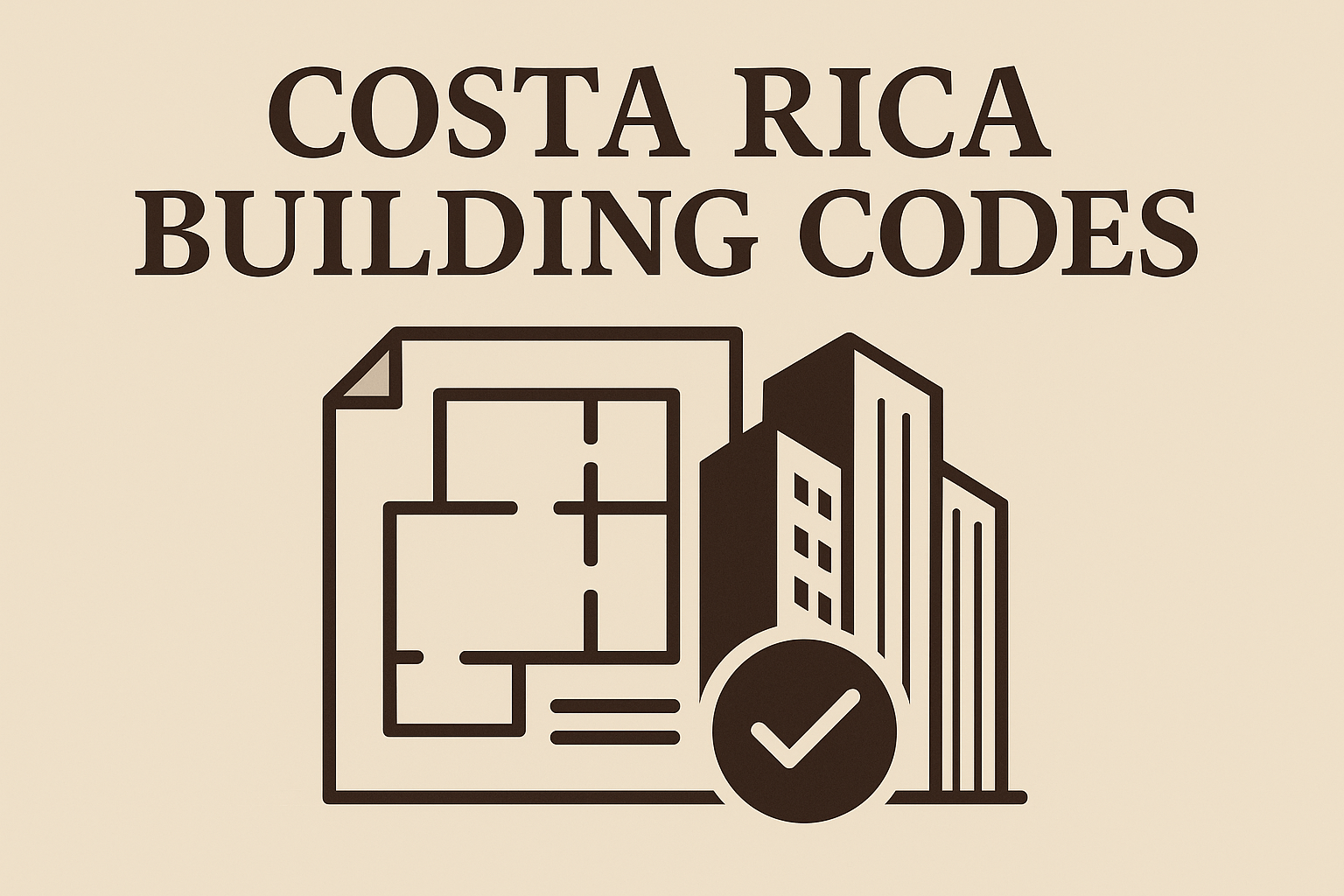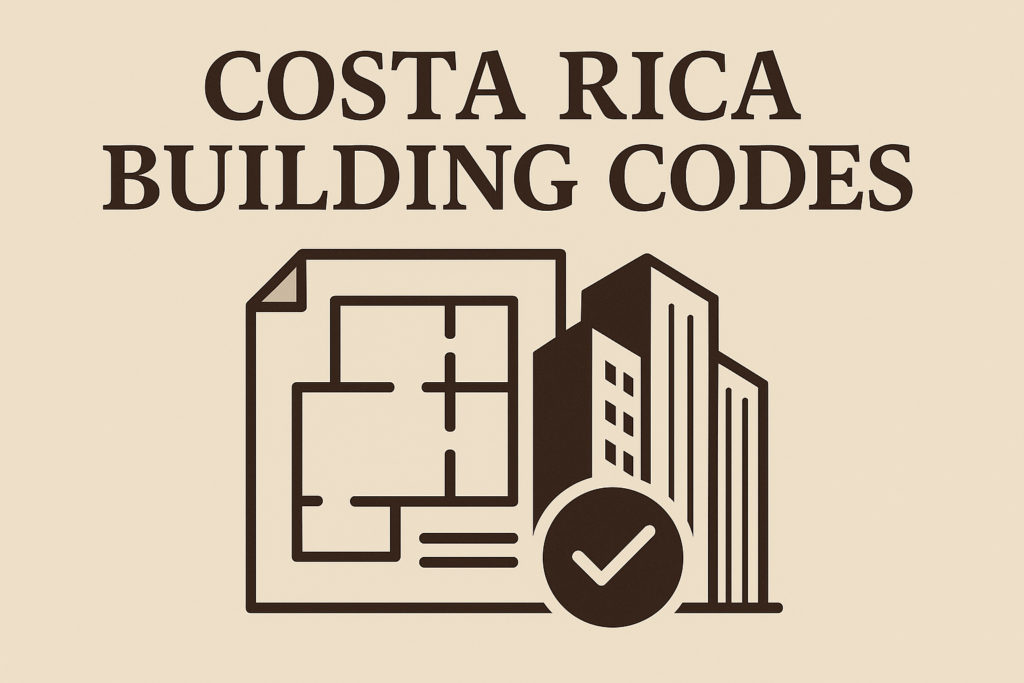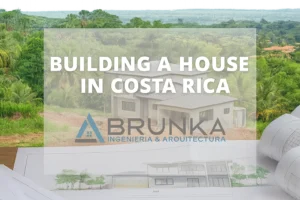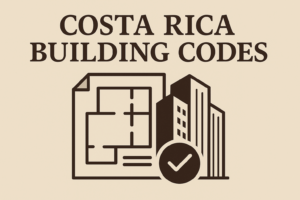
Costa Rica Building Codes: A Comprehensive Guide for Builders and Investors
Costa Rica’s natural beauty and stable economy make it an attractive destination for property investment and construction. However, building in a foreign country requires a thorough understanding of local regulations. This guide provides an in-depth look at Costa Rica’s building codes, permitting processes, and essential considerations for anyone looking to embark on a construction project in the country.Two Weeks in Costa Rica
Understanding Costa Rica’s Building Regulations

Costa Rica’s building regulations are designed to ensure safety, sustainability, and harmony with the environment. The primary regulatory body overseeing construction standards is the Colegio Federado de Ingenieros y Arquitectos (CFIA), which publishes the national building codes and standards.
Key Regulatory Documents
- Reglamento Nacional de Construcciones (National Building Regulations): This comprehensive document outlines the technical standards for construction, including structural requirements, materials, and safety measures.
- Reglamento de la Ley de Construcciones (Construction Law Regulation): This regulation provides the overarching legal framework for construction activities, encompassing land use, zoning, and building standards. magnolia.cr
The Building Permit Process
Obtaining a building permit in Costa Rica is a multi-step process that involves coordination with various governmental agencies. Here’s a step-by-step overview:
1. Hire a Licensed Architect or Engineer
The first step is to engage a licensed architect or engineer accredited by the CFIA. They will design your project and guide you through the permitting process. You can verify their credentials on the CFIA’s official platform. costaricaguide.co.cr+6Zonazul Realty Costa Rica+6Quatro Legal+6
2. Obtain Land Use Certification (Uso de Suelo)
This document, issued by the local municipality, confirms the permissible uses of the land and ensures that your intended construction aligns with zoning regulations. CJ ARQ+4content.lxcostarica.com+4costarica-information.com+4
3. Secure Public Service Certifications
You’ll need to obtain letters from utility providers confirming the availability of essential services like water, electricity, and sewage. Zonazul Realty Costa Rica
4. Environmental Impact Assessment (If Applicable)
For projects exceeding certain size thresholds, an environmental impact study may be required to assess potential effects on the local ecosystem. Zonazul Realty Costa Rica
5. Submit Plans for CFIA Approval
Your architect or engineer will submit the construction plans to the CFIA for review and approval, ensuring compliance with national building codes.Wikipedia+3Quatro Legal+3Zonazul Realty Costa Rica+3
6. Apply for Municipal Building Permit
Once the CFIA approves the plans, you’ll submit them to the local municipality along with all supporting documents. The municipality will review the application and, if everything is in order, issue the building permit. Quatro Legal
7. Register with the Costa Rican Social Security Fund (CCSS)
Before commencing construction, you must register your project with the CCSS to ensure compliance with labor laws and worker insurance requirements.
Construction Standards and Practices
Costa Rica’s construction standards are influenced by its seismic activity, climate, and environmental considerations.
Seismic Considerations
Given Costa Rica’s susceptibility to earthquakes, buildings must adhere to strict seismic codes. These codes dictate structural requirements to ensure buildings can withstand seismic forces.
Environmental Sustainability
Costa Rica places a strong emphasis on environmental protection. Construction projects are encouraged to incorporate sustainable practices, such as using eco-friendly materials and minimizing ecological impact.Wikipedia
Common Building Materials
Concrete is the predominant building material in Costa Rica due to its durability and resistance to pests and humidity. Steel and wood are also used, but they require proper treatment to withstand the tropical climate.
Coastal Construction Regulations
Building in coastal areas involves additional regulations to protect the environment and public access to beaches. The Maritime Zone Law governs construction within 200 meters of the high tide line, dividing this area into:Costa Rica Real Estate Service Dominical+1Tico Times+1
- Public Zone (first 50 meters): No construction allowed.guidetocostaricarealestate.com+11iStockPhoto.com+11YouTube+11
- Restricted Zone (next 150 meters): Construction is permitted under specific conditions and requires a concession from the municipality.
Costs and Timelines
The cost and duration of obtaining building permits can vary based on the project’s complexity and location. On average:
- Timeframe: 2 to 6 months.Grupo ACA
- Costs: Include CFIA fees, municipal taxes (typically 1% of the project’s value), and professional fees for architects and engineers. Grupo ACA+1Quatro Legal+1
Challenges and Considerations
While Costa Rica offers a favorable environment for construction, there are challenges to be aware of:
- Bureaucracy: The permitting process can be complex and time-consuming.
- Language Barrier: Most official documents and communications are in Spanish.
- Local Standards: Construction practices may differ from those in your home country, necessitating close supervision to ensure quality. Living Costa Rica by American European
Frequently Asked Questions (FAQ)
Q1: Do I need a building permit for small renovations?
A1: Yes, any structural changes typically require a permit. It’s best to consult with your local municipality.
Q2: Can foreigners own property and build in Costa Rica?
A2: Yes, foreigners have the same property ownership rights as Costa Rican citizens, except in certain restricted zones.
Q3: How do I find a licensed architect or engineer?
A3: You can search for accredited professionals on the CFIA’s official platform.ICC+2Zonazul Realty Costa Rica+2Quatro Legal+2
Q4: What happens if I build without a permit?
A4: Unauthorized construction can lead to fines, legal issues, and even demolition of the structure.
Q5: Are there any incentives for sustainable building?
A5: While there are no specific financial incentives, sustainable practices are encouraged and may expedite the permitting process.guidetocostaricarealestate.com
Embarking on a construction project in Costa Rica requires careful planning and adherence to local regulations. By understanding the building codes and working with qualified professionals, you can ensure a successful and compliant project.







